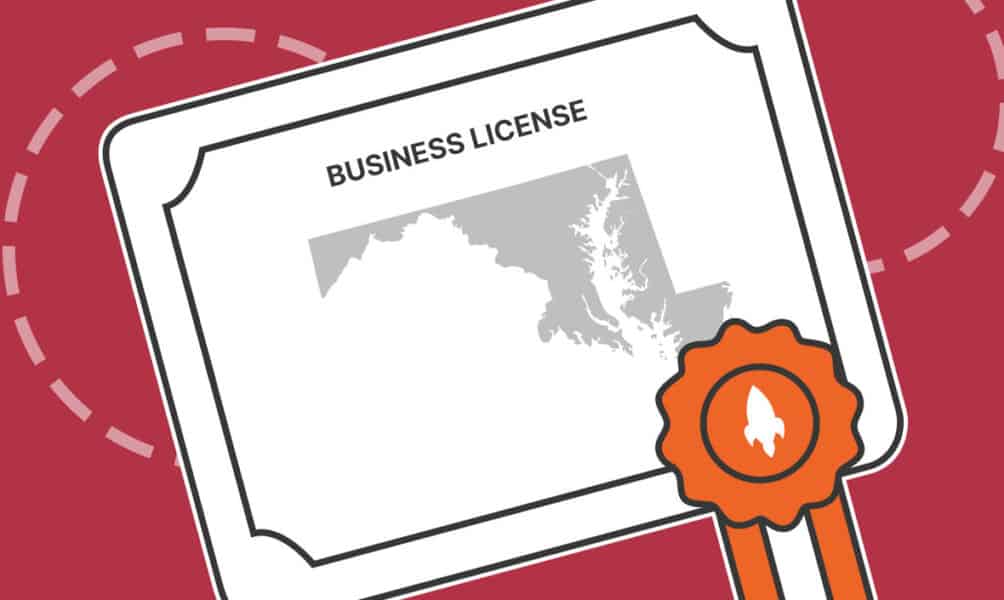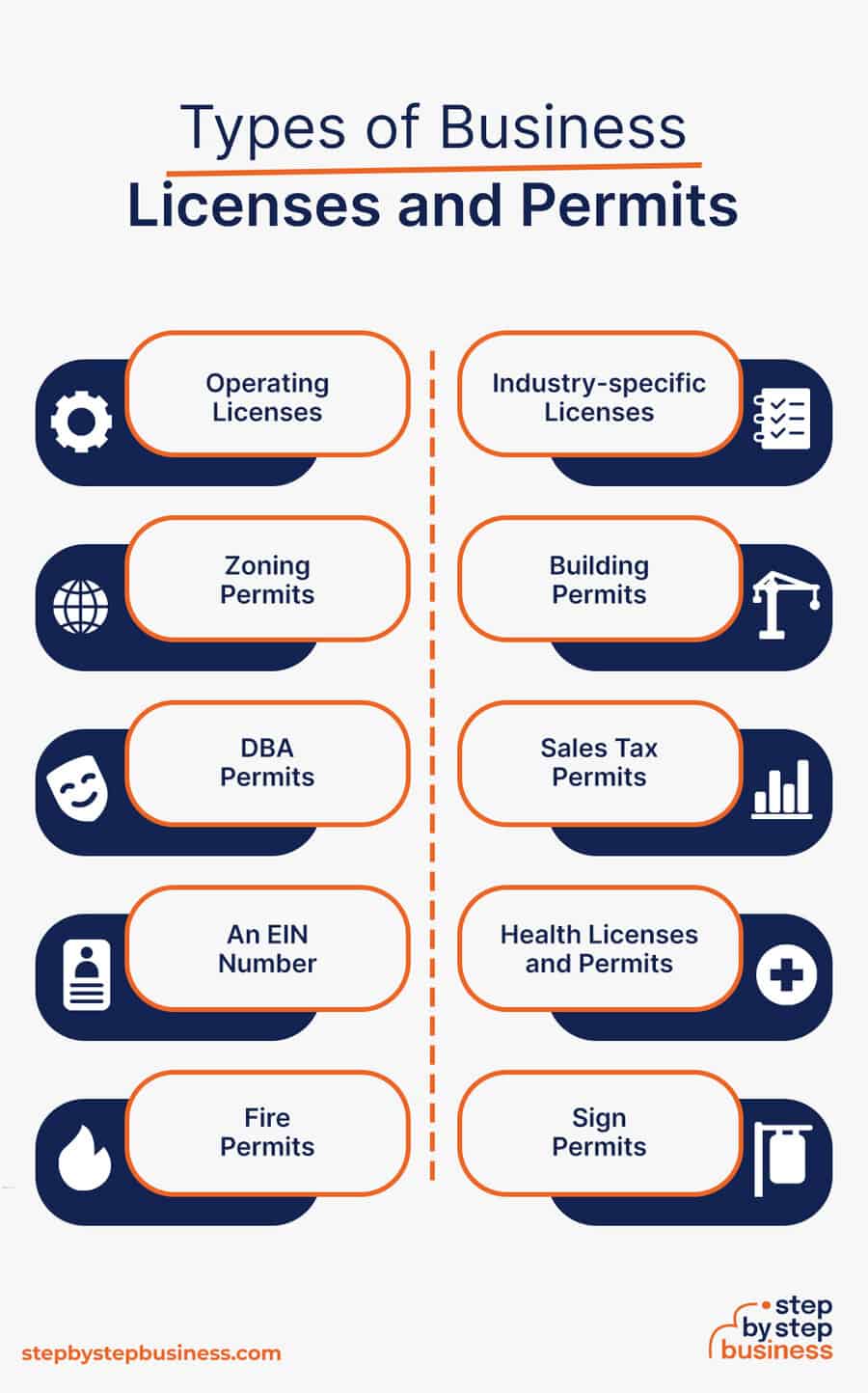Here are the steps you need to take to start a limited liability company (LLC) inMaryland: Choose a name for your Maryland LLC: Your businessna ...
How to Get a Business License in Maryland
Written by: Coralee Bechteler
Coralee is a business writer with experience in administrative services, education, and software testing.
Edited by: David Lepeska
David has been writing and learning about business, finance and globalization for a quarter-century, starting with a small New York consulting firm in the 1990s.
Published on July 11, 2022

One of the most important elements of starting a business in Maryland is making sure you have all the requisite licenses and permits. The requirements vary by state, some of which have as many as 300 different licenses and permits.
This article is too short to list them all, but it’s crucial that you’re aware of which ones your business needs and that you follow the steps for application and put your business on the road to success.
In Maryland, businesses need certain licenses and permits to legally operate as a business. The regulatory hurdles required vary depending on the type of business, its location, and the products and services offered.
To help you launch your new business, this article lays out the most commonly needed permits and licenses in Maryland— and details the steps required to acquire them.
Why are business licenses required in Maryland?
Business licenses and permits are issued to certify that a business and its products and services are safe for the public. This explains why food businesses, for instance, require more licenses than most other business types.
Which agency issues business licenses in Maryland?
In Maryland, the Department of Labor issues the vast majority of licenses and permits, though some are issued by the Department of Agriculture and the Department of Transportation. For instance, the state Department of Labor issues cemetery permits, while the Department of Transportation issues truck driver’s licenses.
Some licenses and permits are issued by cities or counties. So, if you live in Baltimore, you’ll need to check with the city to see if licenses or permits are required for your business.
Before you apply, it’s important to know which state or local agency issues the license you need. Check the state’s guidelines here to learn more.
You could also check this SBA guide for your state’s requirements, but we recommend using MyCorporation’s Business License Compliance Package. They will research the exact forms you need for your business and state and provide them to ensure you’re fully compliant.
Steps to Get a Maryland Business License
In Maryland, the steps for acquiring specific licenses and permits vary widely, so it’s important to be aware of what you need and how to get it.
Determine the Types of Licenses That You Need
In Maryland, most businesses require at least a business license from the county they’re located in. Businesses that purchase and resell products will also need a trader’s license.
The additional licenses your business needs in Maryland will reflect the general type and nature. For example, a convenience store seeking to sell prepared food must first acquire the necessary licensure.
To safely run your business, it’s essential to review both state and county requirements and verify that your business is properly licensed.
Types of Business Licenses
Your business may need local, state, and/or federal licenses and permits, depending on your type of business. Fees for these vary, but most costs are minimal.

Federal regulations associated with starting your business include doing business as (DBA), health licenses and permits from the Occupational Safety and Health Administration (OSHA), trademarks, copyrights, patents, and other intellectual properties, as well as industry-specific permits.
The most common permits and licenses include:
- Business operating licenses may be required by the city and the state to allow you to operate.
- Industry-specific licenses may be required, depending on your type of business. Businesses involved in construction, childcare, plumbing, electrical, food and liquor, insurance, finance, landscaping, and architecture all require licensing, for example. In some highly regulated industries, you may require licensing from a federal agency, such as the FDA or the Department of Transportation.
- Zoning permits are issued by municipalities to ensure you’re operating in an area in which you’re allowed to operate.
- Building permits verify that the building you’re operating in is up to code. Home occupation permits, which some areas require, allow you to operate a business from your home.
- DBA permits allow you to do business under a name that is different from your legally registered business name.
- Sales tax permits allow you to sell products and collect sales tax.
- An employer identification number (EIN) is required if you plan to have employees, no matter what your business entity type.
- Health licenses and permits are required for certain businesses based on industry, and you will be required to maintain health and safety standards. Environmental permits are also required for certain industries in some locations.
- Fire permits certify that your business is up to fire safety codes. Depending on your location, this may be required for all businesses, while in other areas, it’s required only if you work with flammable materials.
- Sign permits may be required for your location or other signage if there are rules about sign size and location.
Check with state and local government offices for specific requirements for your location and industry.
Submit Your Business License Application
Most businesses in Maryland can apply for a business license through their local Clerk of the Circuit Court. Simply select your business’s county and apply online using Maryland’s Business Licenses service.
However, businesses located in Calvert County should note that they cannot apply online and must apply in person at their local Clerk of the Circuit Court’s office.
Additional licenses are filed with various departments of Maryland, so it’s best to double-check where to file a given form on the state’s OneStop Portal. You can also contact the State License Bureau at 410-260-6240 for more information.
How much does a Maryland business license cost?
Business license fees vary in Maryland depending on which license is being applied for. Costs range from $0 for a waterway construction permit to $4,500 for an insurance license.
In Maryland and most US states, jumping through all the hoops to acquire the necessary licenses and permits can be exhausting. But if you want to operate your business, you’ll have to wade through all the red tape. So get started on these regulatory hurdles as early as possible and clear the way for your entrepreneurial journey to success.
How fast can I get a business license in Maryland?
The processing time for business licenses in Maryland varies from county to county, but filing online can help speed up the process.
In Maryland, applications for other licenses are processed in a range of timeframes. For example, utility permits take up to three days to process, while groundwater discharge permits can take up to 14 months.
You can look up licenses for your business and view their processing estimations here.
Renew Your Licences When Needed
In Maryland, all business licenses expire every year on April 30th — even if you applied for a license just two days prior. This means you’re required to renew your business licenses annually, and in order to qualify for a renewal, your business must be up to date on all taxes.
Renewal fees vary among licenses in Maryland, so it’s best to check with the state about your business’s license needs.
Subscribe to Our Newsletter
and gain insider access to cutting-edge business insights and trends.
Featured Resources
How to Start an LLC in Maryland in 7 Steps
Published on March 8, 2022
Read Now

Starting a Business in Maryland: 13-Step Guide
Published on September 29, 2021
Maryland is one of the original 13 colonies and the birthplace of the national anthem, which means it’s a crucial part of American history.It� ...
Read Now
Comments